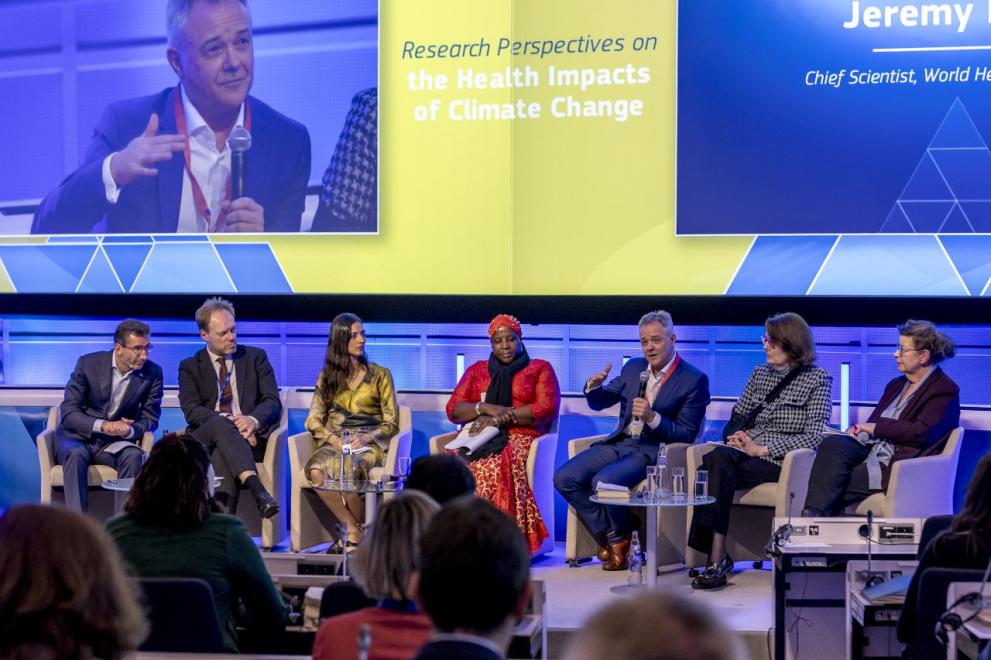
European Commission has launched the preparations for the new Strategic Research and Innovation Agenda (SRIA) on climate and health, after collecting large amounts of input from all the participating experts, through a total of 4 plenary sessions and 12 side sessions.
On 19 and 20 February 2024 nearly 500 researchers, decision-makers and funders working at the intersection of climate change and human health gathered in Brussels to be part of the ‘Research Perspectives on the Health Impacts of Climate Change’ high-level conference (better known as the EU Climate & Health conference). A total of 80 speakers and 50 poster exhibitors travelled to Brussels from all around the globe to provide their input and reflect on the most important challenges, priorities and needs currently existing in climate change and health research, a vital but historically understudied and underfunded field. Together with online attendance, an estimated 1300 people took part in the event.
A resounding message emerged from the discussions: climate and public health action must be supported by a bold, forward-looking, and inclusive European research and innovation agenda with a truly global focus.
At a pivotal moment in time, the conference seized the growing momentum to deal with the climate crisis as the public health emergency that it is, advocating for just and meaningful climate action from both an adaptation and mitigation standpoint and with special attention to human health and the health co-benefits that stem from mitigation actions.
Speakers also made several urgent pleas, calling for more interdisciplinary research and highlighting the need to break silos and bring together the climate and health communities. Some of the key challenges raised by experts during the event were the slow translation of research findings into climate and public health policies, the difficulties experienced by researchers in the Global South to access funding for climate and health research, and the disparities in availability and generation of data and evidence across different geographical regions. It was also noted that evidence, although widely available in some cases, lacks depth and inclusivity, thus making the case for more qualitative research of wider representation that can facilitate climate adaptation and mitigation strategies that benefit and protect our health.
For these reasons, the conference became a key step on the journey towards a new Strategic Research and Innovation Agenda (SRIA) on climate and health, which will need to be undertaken together by as many global climate and health actors as possible.
More information
Details
- Publication date
- 1 March 2024
- Author
- Directorate-General for Research and Innovation
